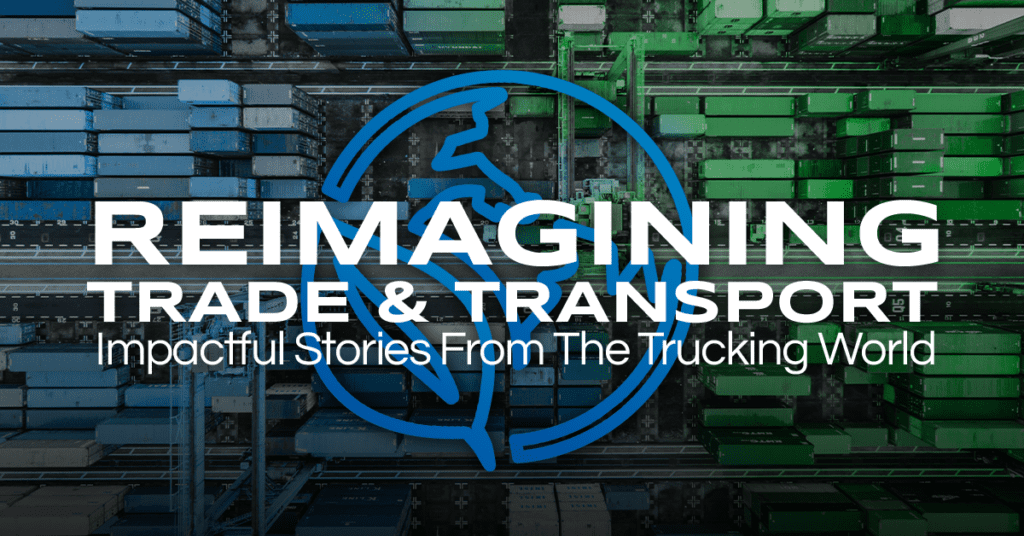
In today’s rapidly changing world, supply chains are undergoing significant transformations as they adapt to the evolving landscape of global trade. The aftermath of the Covid-19 pandemic has prompted businesses to reevaluate their strategies, focusing on resilience, regionalization, and supplier diversification. As companies balance the trade-offs between minimizing risks and costs, they must also contend with the expansion of environmental regulations and the increasing focus on sustainability. This article will explore the ways in which supply chains are being reinvented, the impact of the pandemic on the trucking industry, and the challenges faced by businesses in adopting cleaner transportation technologies. With the use of relevant keywords and SEO optimization, this article aims to engage and inform readers on the latest trends and developments in supply chain management and the trucking industry.
Driving Towards Emission Objectives: Lawmakers and Truckers Push for Tax Repeal
The Biden administration’s push for cleaner vehicles and reduced emissions faces a challenge in the form of a century-old tax on new heavy-duty trucks thats origins date back all the way to World War I. This 12% federal excise tax, which is added to the first sale of heavy trucks used on highways, significantly increases the upfront cost of acquiring clean trucks. Industry advocates, however, believe that with lawmakers’ emphasis on and interest in clean vehicles could ultimately pave the way for rethinking this long-standing tax for the current state of the industry.
Aiming for Equitable and Affordable Clean Fleets
The federal excise tax impacts the affordability of new technologies such as battery-electric and alternative fuel vehicles. By eliminating the tax, the initial cost of purchasing trucks that utilize these technologies could be reduced by tens of thousands of dollars. While there is a clear push to repeal the tax, small fleet owners are growing more concerned about the potential loss of Highway Trust Fund revenue. The Highway Trust Fund is part of the Federal-Aid Highway Act and is used to finance the construction, maintenance, and improvement of the nation’s highways and transportation infrastructure overall. For most of its history, funds have mainly come from taxes on gas. However, with the rise of fuel-efficient and electric vehicles, revenue from gas taxes has seen a steady decline year after year.
A Balancing Act for Small and Large Carriers
Repealing the excise tax would likely primarily benefit larger carriers, enabling them to purchase new trucks, while smaller carriers continue to struggle to afford the new rigs that meet current emissions and operating standards. Small trucking businesses worry that they may be forced to pay higher taxes without the excise tax, giving larger carriers even more of a competitive advantage. However, advocates of the repeal argue that removing the tax could benefit all carriers and help achieve cleaner air on the way to a zero-emission future.
A Possible Tax Repeal Amid Cleaner Transportation Initiatives
Increased interest in cleaner transportation and resolving supply chain issues may lead to legislation repealing the tax during this Congress. As the Senate is expected to vote on a resolution addressing smog-forming emissions, the support for the trucking industry indicates a potential shift in lawmakers’ priorities.
Reinventing the Supply Chain: Adapting to the Evolving Landscape of Global Trade
In the aftermath since the Covid-19 pandemic, global supply chains are still experiencing significant shifts. While the Federal Reserve Bank of New York’s Global Supply Chain Pressure Index indicates a return to stability, experts argue that this doesn’t necessarily mean a return to the old ways. Instead, many companies are adapting to broader, long-lasting changes in supply chain management, focusing on resilience, regionalization, and supplier diversification.
Transforming the Supply Chain Landscape
These post-pandemic supply chains are now being built with an emphasis on regionalization, ensuring production is as close to the target markets as possible. Businesses are taking this even further and are diversifying their supplier bases, moving away from the common practice of single-sourcing, as well as incorporating new automation advancements in various aspects of their operations. These changes aim to make supply chains more resistant to disruption and marks the single most significant shift in supply chain management since China’s entry into the World Trade Organization all the way back in 2001.
Balancing Risks and Costs
As companies begin to reevaluate their sourcing strategies, they must consider the trade-off between minimizing risks versus minimizing costs. All the while, the expansion of environmental regulations and increasing focus on sustainability add not only complexity but additional expense to the process. The just-in-time principle, which has long championed lean inventories, may become much less prevalent as businesses continue recognize the value of buffer stock and greater regionalization of production in order to minimize risks faced over these unpredictable years.
Lessons Learned and Lasting Impact
The accelerated adoption of technology during the pandemic will likely have a long and lasting impact on supply chains. However, there is a greater lesson to take from this unraveling situation and it lies in how exactly companies adapted and responded to the pandemic strains, learning to be more nimble and capable than previously thought. This newfound agility may inadvertently prove to be the most impactful takeaway from the Covid-19 crisis.
Manchin Joins Republican Push to Reverse Biden’s Truck Pollution Rule
Sen. Joe Manchin (D-W.Va.) joins Republicans in a bid to overturn a Biden administration rule aimed at limiting pollution from heavy-duty trucks. Voicing concerns over the impact on the trucking industry and supply chains, Manchin supports a resolution to nullify the regulation, calling it “government overreach.” The rule in question aims to reduce emissions of nitrogen oxides, which can harm the respiratory system, with the EPA claiming that the limitations could prevent thousands of premature deaths and childhood asthma cases by 2045.
Economic and Political Ramifications
Manchin’s opposition to the EPA rule highlights the potential consequences for the trucking industry, including increased costs and the threat it creates for small trucking companies. In an era of high inflation and already vulnerable supply chains, Manchin argues that the EPA should not have unrestrained power to impose regulations that could potentially damage the economy through unintended consequences. Additionally, Manchin’s opposition to various Biden administration regulations may reflect his strategic positioning for a potential reelection bid in conservative-leaning West Virginia.
Driving Change Together: The Need for Government Coordination in Green Trucking
Europe’s legislators are urged to synchronize their efforts in order to transition the continent’s trucking industry towards utilizing more sustainable fuel vehicles. With 70%-80% of drivers working for small and medium-sized enterprises (SMEs), the focus should shift from setting targets to facilitating the transition. While renewable energy usage in European transport increased from 2% in 2005 to 10.2% in 2020, the adoption of alternative fuels and electric trucks remains low, highlighting the need for infrastructure development and potentially even governmental support.
Setting the Stage for Sustainable Transport
The updated Renewable Energy Directive aims for a 45% target in the transport sector by 2030. As trucking accounts for more than 90% of European freight, with rail at only 5%, focusing on haulage is crucial. However, despite the prevalence of biofuels, truckers continue to face challenges in transitioning to electric vehicles due to inadequate support from the industry’s infrastructure. According to some, in order to encourage haulers to make the shift, it is essential to provide a harmonious combination of financial incentives and infrastructure support.
🔗 Check out the full article here.
Before You Hit The Road…
In conclusion, the ever-evolving landscape of global trade and the ongoing effects of the Covid-19 pandemic have clearly brought about significant shifts in supply chain management and the trucking industry. As businesses strive to adapt to these new changes, the focus on resilience, regionalization, and supplier diversification becomes increasingly more important. The adoption of cleaner transportation technologies presents its own set of challenges, but with the right balance of incentives and support, a greener future may be within reach. We encourage our readers to share their thoughts and opinions on these topics in the comments section below, and don’t forget to check back next week for another edition of our weekly trucker news roundup.
If you made it to this part of the article, we’d just like to take a moment to thank you for taking the time to read it. Be safe out there and as always, If you’re in search of CDL A, B, or warehouse positions, check out our open positions. And if you need staffing solutions for commercial driving or industrial positions, be sure to explore our offerings.



